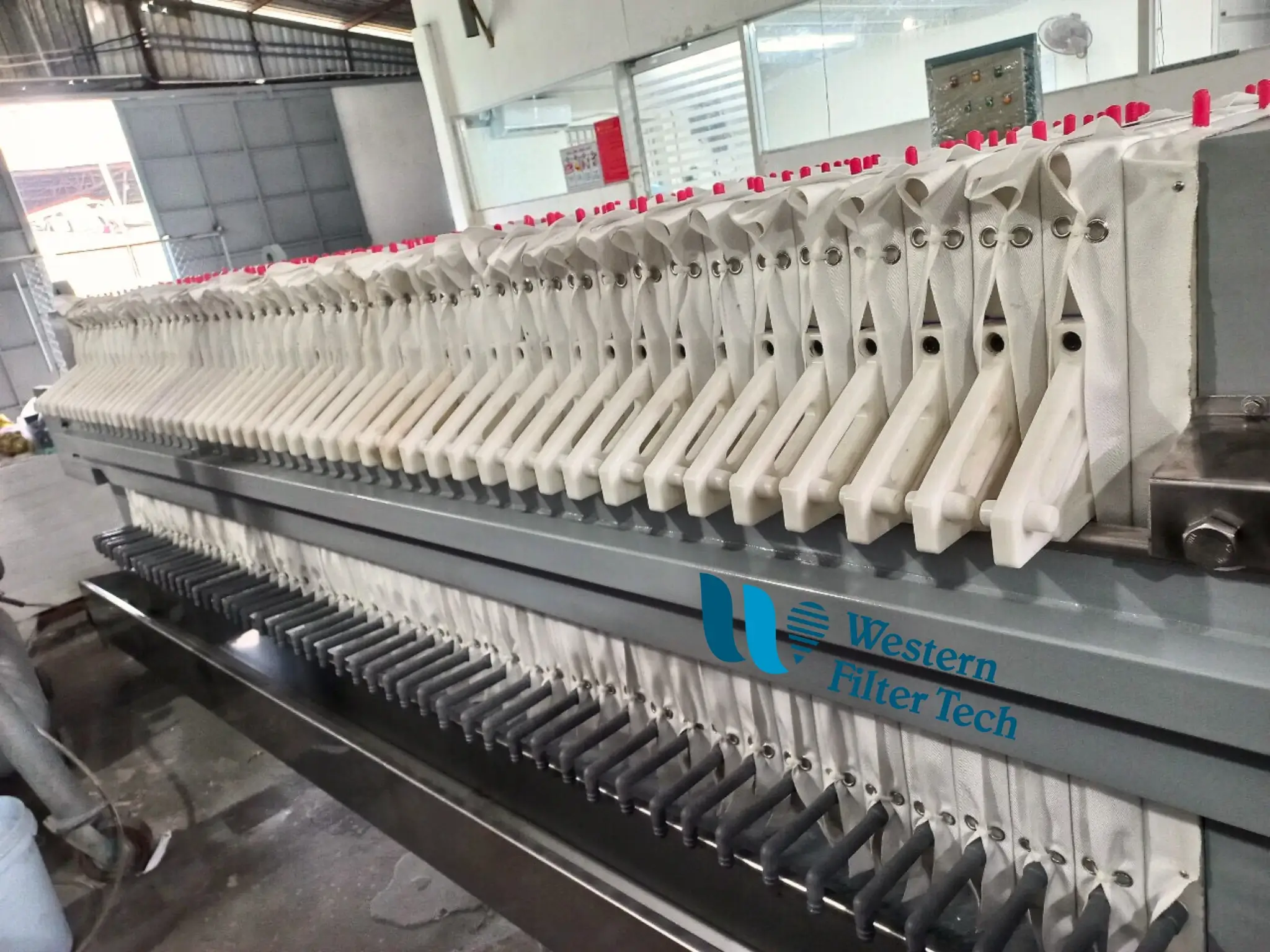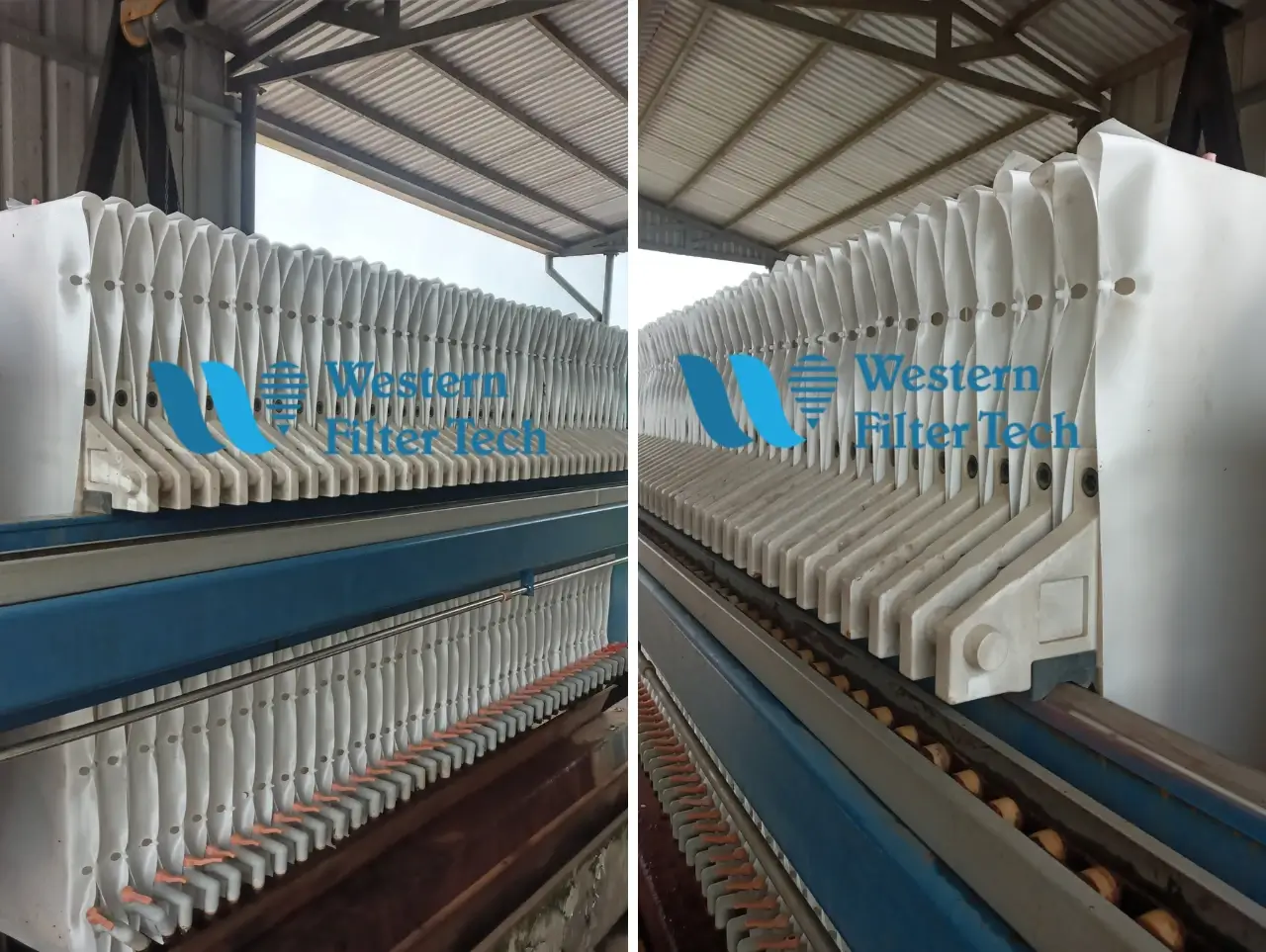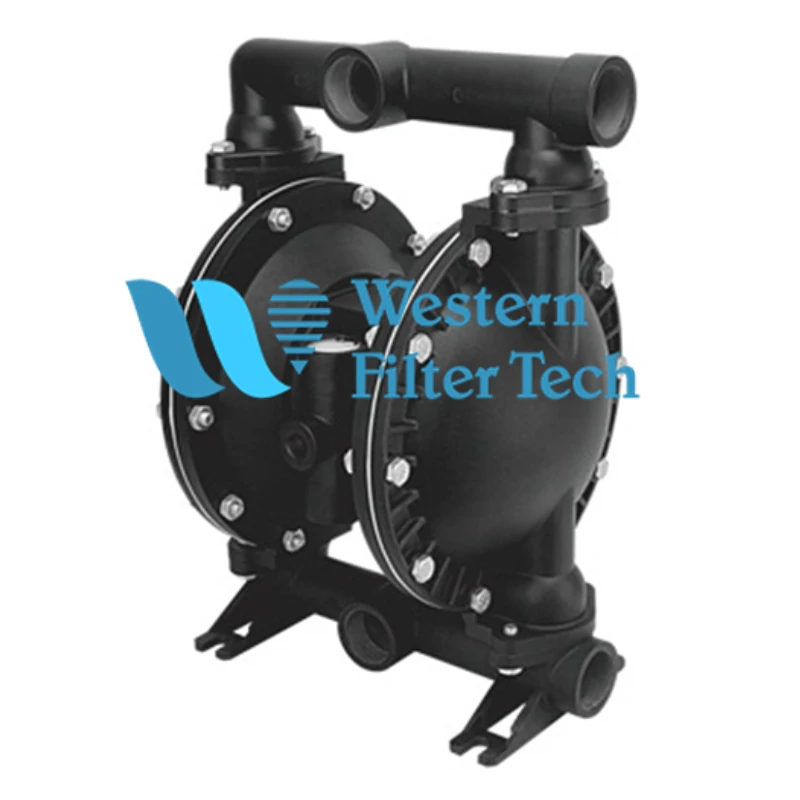Troubleshoot chamber filter press working but can’t press sludge!
Contents
The chamber filter press is an essential tool in wastewater treatment and sludge processing. However, there are instances where the sludge dewatering press may encounter issues and fail to effectively dewater the sludge as intended. In this article, Western Filter will reveal 8 ways to deal with the problem of a sludge dewatering press operating but failing to dewater the sludge. This will help you improve efficiency and ensure the stable operation of the sludge dewatering press.

The chamber filter press sludge dewatering press is used to press, compress, and remove sludge from the wastewater treatment process. However, there may be situations where the sludge dewatering press is operational but not effectively pressing the sludge. This can lead to blockages, reduced efficiency, and impact the wastewater treatment process. Below are some ways to address this issue!
1. Check the structure of the chamber filter press
Firstly, you should check the structure of the chamber filter press. Ensure that the frame and other components of the press are not damaged or imbalanced. If there are any issues with the structure, proceed with repairs and maintenance to ensure proper operation of the press.
An unstable frame structure of the sludge chamber filter press can result in the inability to apply even pressure to the sludge during the pressing process. This can cause the sludge to not be tightly pressed or even “leak” out of the frame. Check that all mechanical elements of the machine are functioning correctly and without any malfunctions.
Additionally, ensure that the parts of the chamber filter press are installed correctly and not imbalanced. Check the path of the sludge during the pressing process and identify any obstructions that may hinder the sludge pressing process.
2. Check equipment and components
Next, inspect all the equipment and components related to the sludge pressing process. Ensure that devices such as pumps, valves, pressure control valves, and other components are functioning normally.
One of the common causes of chamber filter press malfunctions that immediately affect the pressing process is a faulty or clogged sludge feed pump. Check the condition and performance of the pump, ensuring that they are free from issues and operate stably.
See more: Pneumatic diaphragm pump for chamber filter press
AODD pump
Also, inspect and clean the valves and pressure control valves to ensure they are not stuck or clogged. Faulty or improperly functioning components can be the cause of issues in the sludge pressing process.
3. Check and clean the filter clothes
The filter clothes in the filter press can become clogged with sludge or impurities. This hinders the sludge pressing process and reduces the machine’s efficiency. Check the filter cloth and clean or replace it if necessary. Ensure that the filter cloth is kept free from any debris to ensure proper ventilation and good sludge pressing capability.

4. Adjust pressure and pressing time
Another way to deal with the issue of an operational sludge chamber filter press not effectively pressing the sludge is by adjusting the pressure and pressing time. Firstly, check the current pressing pressure of the machine. If the pressure is too low, the sludge will not be tightly pressed and result in poor performance. In this case, increase the pressing pressure to an appropriate level to ensure tight sludge pressing.
However, it is also important to note that excessive pressure can cause other issues such as machine structure damage or sludge breakage. Therefore, adjust the pressure carefully and thoroughly check the effectiveness after each adjustment.
Additionally, the pressing time should also be adjusted properly. Ensure that the pressing time is sufficient for the sludge to be tightly pressed without damaging the frame. If the pressing time is too short, the sludge may not be adequately pressed. On the contrary, excessively long pressing time can cause damage or reduce the machine’s efficiency.
Find the ideal pressing time to achieve the best efficiency or consult with a specialized technician on chamber filter presses to achieve optimal results without consuming too much of your time
5. Check the electrical system
The electrical system is also an important factor in the operation of a filter press. Check the condition of electrical devices, cables, and the electronic system of the machine to ensure they are functioning properly.
Inspect switches, control panels, and the machine’s control unit to ensure that the electronic functions are operating correctly. If any issues are detected, replace or repair faulty components to ensure the stable operation of the machine’s electrical system.
6. Improve Sludge Treatment Process
To address the problem of inefficient operation of the chamber filter press, improving the sludge treatment process is an effective approach. Learn and apply new sludge treatment methods, advanced technologies, or upgraded equipment to enhance the dewatering capability and efficiency of the machine.
Consult and collaborate with experts in the field of sludge treatment to find optimal solutions for your filter press. Continuous improvement of the sludge treatment process will help increase performance and ensure the stable operation of the chamber filter press.
Western Filter, as a pioneer in technology application, incorporates new techniques into filter press. It is a suitable choice for customers seeking optimal solutions that save operating costs and promote production growth.
7. Upgrade or Replace the chamber filter press
If the sludge chamber filter press is too old or no longer meets the requirements, consider upgrading or replacing the machine with a new device. This can help improve the performance and dewatering capability of the system.
If you are looking for a comprehensive solution to redesign your sludge treatment system and always listen to understand the issues you are facing, Western Filter is an excellent choice.
With over 6 years of experience in the field of frame sludge filter press, we have built a solid reputation and credibility in providing top-notch technical solutions. Western Filter understands that each customer has their own needs and requirements, so we constantly strive to meet and exceed those expectations. We aim to make you satisfied with the value you receive!
8. Training and Maintenance of Technical Staff
Training and maintaining technical staff play an important role in dealing with the situation where the chamber filter press fails to dewater sludge. Ensure that employees understand the operating procedures and know how to handle potential issues.
Conclusion
Above are 8 ways to deal with the situation where the frame sludge filter press operates but fails to dewater sludge. Checking the sludge feeding system, inspecting the filter press system, assessing sludge quality, adjusting operational parameters, and consulting with experts all play crucial roles in troubleshooting and ensuring the efficient operation of the chamber filter press.
If after implementing these measures the filter press still doesn’t function, it is advisable to contact a professional technician or the manufacturer for technical support.
>> You may be like: How to use the filter press after a long period of inactivity?
>> Visit fangape Facebook of Western Filter to update more news
>> Contact now: 0909796560 (Ms. Thanh) for a free consultation!





